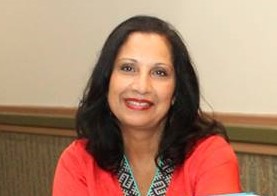As a Pakistani-American residing in the US for over 40 years, I used to go regularly to Pakistan to visit family until recent years. After the tides turned against Pakistan in superpower politics, and the violence increased in the big cities especially, I began to worry about traveling there due to personal fear. So when I found myself at Dubai airport this January taking a flight to Lahore to visit my favourite uncle and mentor Dr. Abdul Raouf, I was both excited and scared. Would I find the driver? Would I reach the house safely? I did find the driver, and as we drove through the rather clean streets of Lahore, I began to feel a peace and a calming feeling washing over me. I remembered stories and movies of how these very same people experienced the bloody Partition when the British left and yet survived it. The streets must have been littered with blood and bones at that time as the British army retreated leaving a wake of sectarian violence of a scale never seen before. And maybe whenever, if ever, the American army retreats, they will survive again, and focus on re-building not tearing each other apart. I felt that vision despite the daily news of murders, assassination and bombings. And as I sat in the peaceful garden outside the guest room at Chachajan’s house listening to birds chirping in the mango, orange and banana trees, I felt at home and truly at peace. This is what peace could look like if we humans decided to aspire to our higher selves, not our animal brains, and this peace is all possible if only we put our minds and hearts to it.
As I accompanied my uncle to his university – the University of Management and Technology- every day, we would enter the compound and pass clusters of students quietly studying for their upcoming exams. They are the future generation of this country, I said to myself, and I wonder what they think of all this? What do they want to change? What do they think and feel about the country’s state, about US Pakistan relations, and most importantly what do they want to do with their lives to create progress for themselves and the people of Pakistan? Thanks to my uncle, Dr. Raouf, who himself repatriated to Pakistan after a great career and author in industrial engineering abroad, which he still continues; and Dr. Naveda Kitchlew, another professor who repatriated from Chicago USA, and Noor Aslam Khan, the facilities director, who was the first Pakistani from the region of Waziristan that I met. Waziristan is of course where all the drone attacks are being carried out – a tribal rural area still living in the Middle Ages with honors – some pagan and brutal ones too- and values similar to chivalrous knights of yesteryear being bombed by super advanced machines controlled by civilians in Syracuse New York or Las Vegas, Nevada.
Well, we were able to arrange dialogue circles with the students at UMT, and to my surprise and delight, they still saw the US as that free and open society, and they expressed a desire to talk with their counterparts – the youth- of America to share their dreams with them, and to hear their dreams! The more I talked with these young students, the more my hopes were ignited and I began to feel that peace, that knowing, that out of all this mess, something good will be born. I saw again in them the sheer decency, humility and peace-loving nature of the average Pakistani, and it healed me. Superpower politics or not, sheer human decency will prevail I thought. My first interview was with Noor Khan, and his message was to the American people: “Can you influence your government not to be a stooge in the hands of the enemies of peace? Can we respect and regard each other as humans and resolve our differences using the language of peace and honor and respect?”
The students were just as passionate and interested, and felt that the change has to come from within. First, corruption has to be eliminated and law and order has to be restored, and they both go hand in hand. Secondly, the violence is condemned by all in Pakistan, as they are the ones who suffer the most, but there is no accountability and no prosecution. Without linkage to the root cause of violence, how can it be stopped? Hate just doesn’t erupt and become so violent. There is always more to the story. More farmers commit suicides daily than the number of suicide bombings. How long will leaders allow the rage to build up like this? How will it erupt? And what would the consequences be?
Their hope was that true leaders will emerge, leaders with courage and with a vision to lead Pakistan again. Most of them were seeing a ray of hope in Imran Khan and the Tehreek-e-Insaf movement. Some of them felt that the 1% ruling the 99% was a global phenomenon and the global capitalist system needed a transformation. In a country where 65% of the population are the youth, and 4% only graduate from college, but 60 % of those are jobless, what are breakthrough solutions? What I admired most about the students is that they did not blame others, and only wanted a chance to prove a different possibility! To be continued

Be First to Comment